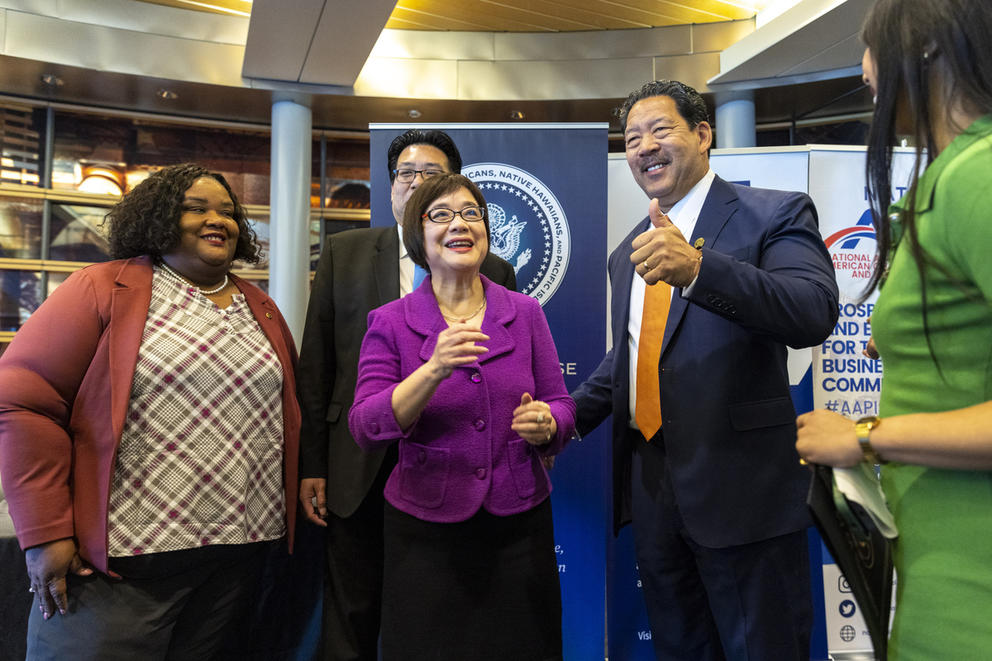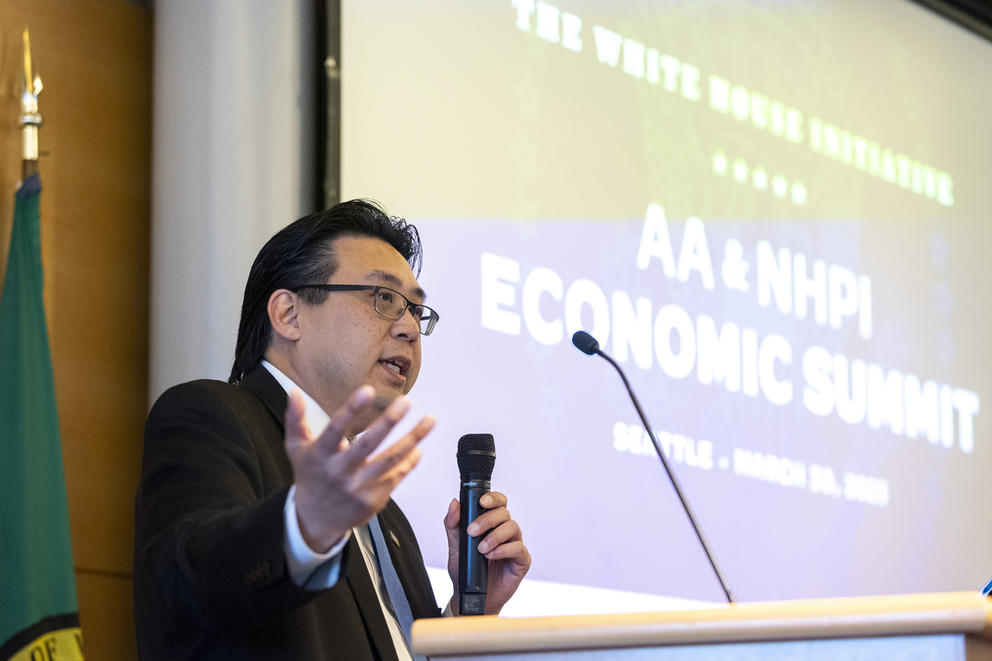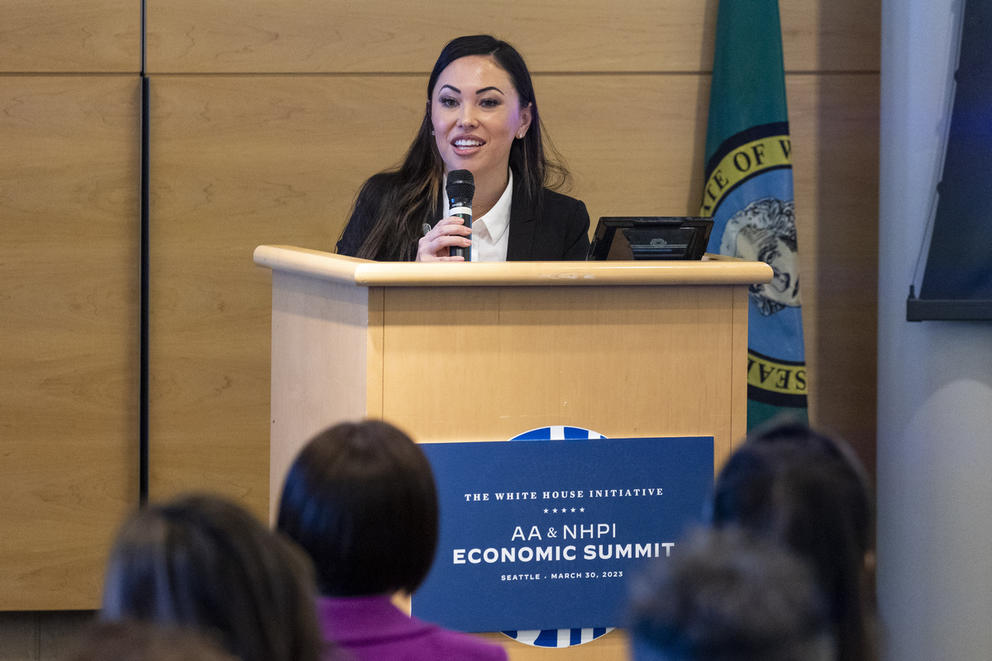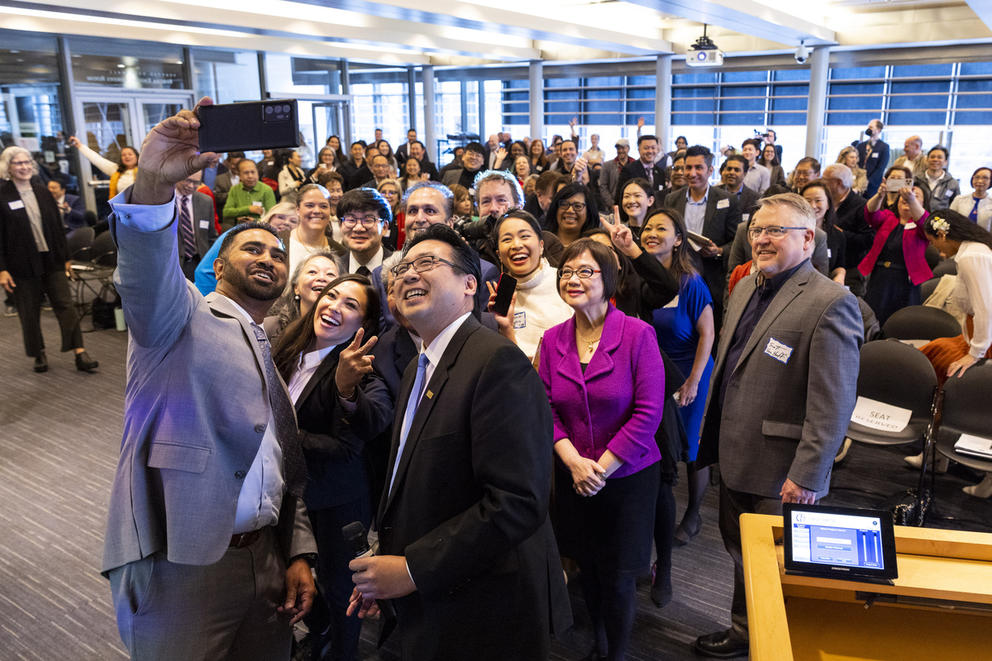The event marked the third stop for the federal government delegation, which is hosting summits to improve the economic standing of these populations. President Joe Biden’s Advisory Commission on Asian Americans, Native Hawaiians, and Pacific Islanders recommended the summit series as a way to connect local community members with leaders and resources at the federal level.
Limited outreach and language barriers have inhibited them from applying for federal grants, jobs and programs, according to a press release on the event, which highlighted a telling statistic: Small businesses owned by members of these communities received less than 3% of federal contracting dollars in Fiscal Year 2020, even though these populations own about 10% of the nation’s small businesses.
In Washington, these communities own 65,000 small businesses, according to Mike Fong, a regional administrator for the U.S. Small Business Administration, who spoke during the summit. This state also has one of the nation’s largest Asian American populations, as well as one of the largest Native Hawaiian and Pacific Islander (NHPI) populations.
“In Washington state, we have so much to lend to the national conversation,” Toshiko Hasegawa, Port of Seattle Commission Vice President, said in an interview with Crosscut.
Hasegawa, who serves as the executive director of the state’s Commission on Asian Pacific American Affairs, pointed to the state’s position as a point of entry for many of these community members, as well as its work to champion social justice and equity issues.
That commitment to equity is timely for these communities: In May 2021, Biden issued an executive order on advancing equity and opportunities for Asian Americans, Native Hawaiians and Pacific Islanders. In the order, the president named the hardships these communities experienced during the pandemic, including “tragic acts of anti-Asian violence,” disproportionate health burdens, and “devastating economic losses.”
Chiling Tong, president of the National Asian/Pacific Islander American Chamber of Commerce and Entrepreneurship, noted this strife has yet to relent.
“Some Asian restaurants, after COVID, they still cannot recover,” she said in an interview with Crosscut, noting the contrast with other restaurants that are growing and getting business.
These issues may be exacerbated by the perception these communities have of the government; Cho with the Port of Seattle pointed out that there could be a legacy of historical trauma at play.
“A lot of immigrants come from, you know, dictatorships, authoritarian regimes, et cetera,” he said. “But also, it’s very complicated to work with government.”
National, regional and local leaders expressed support for these communities at Thursday’s event. This included Mayor Bruce Harrell, who spoke at the summit, as well as U.S. Sen. Patty Murray and U.S. Rep. Pramila Jayapal, neither of whom attended but prepared remarks that were delivered to the crowd. Part of the summit featured breakout sessions on topics including resources for businesses and government contracting opportunities.
More than 200 people, including entrepreneurs and community members, attended the event, according to a recap email from the White House Initiative on Asian Americans, Native Hawaiians, and Pacific Islanders.
Joan King, director of the Asian American and Native American Pacific Islander-Serving Institutions (AANAPISI) Program at Shoreline Community College, attended the summit Thursday. For her, going to the event was all about connections.
“I really take strength from community,” said King in an interview with Crosscut, attributing this feeling to her identity as Korean American. “I want people doing the work to know that I’m also here for them, if they need me in whatever capacity.”






